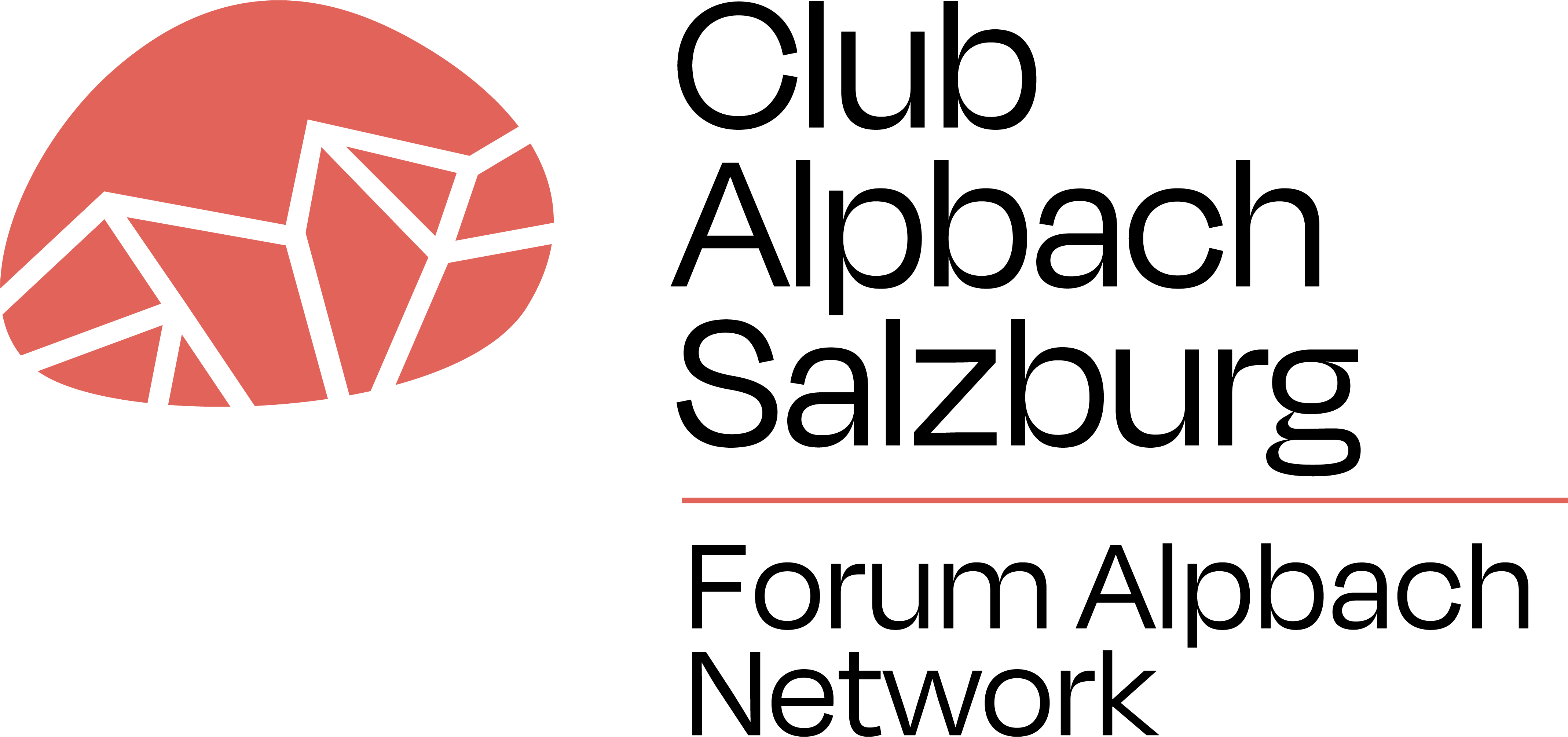The European Forum Alpbach is an interdisciplinary, international forum that has taken place annually in late summer in the small Tyrolean mountain village of Alpbach since 1945.
What makes the European Forum Alpbach special?
The people.
The molecular biologist meets the philosopher, the sociology student meets the banker, the researcher from Bucharest meets writers from Tokyo, the bartender meets the president. These encounters and the experience of how many new things people have to say to each other are what make Alpbach so special. What bridges the differences is unusual openness, broad interest, strong commitment.

Photo: Jannik Rakusa, European Forum Alpbach
What makes the European Forum Alpbach special?
The interdisciplinary.
Talks on technology, environment and health, talks on the economic and financial market and policy making are some major headings of the forum. Contributions from the arts accompany the talks from the first to the last day: performances, readings, concerts, exhibitions. The aim is to bring together the fields of knowledge and to bring together different competencies, views and generations.


Photo: Maria Noisternig, European Forum Alpbach
What makes the European Forum Alpbach special?
The place.
In Alpbach there are a few steep roads, a proud traditional costume, some beautiful peaks, wonderful Kasnockn, questionable schnapps and an inn where everyone gets together in the evening. Everything is within walking distance, mountain and meadow are never far. Alpbach is an Austrian vacation village at its best, where an international congress of thinkers found itself. The closeness, the simplicity, the different: Alpbach helps thinking and meeting, it is the Tyrolean magic ingredient of the Forum.

Photo: Bogdan Baraghin, European Forum Alpbach
What makes the European Forum Alpbach special?
It’s history.
In 1945, young people from Austria, Germany, the USA, France and Switzerland gather and try to rethink Europe together. This is the birth of the European Forum Alpbach. This committed venture to approach others, against whose nations one’s own has just fought, is the legacy that the founders Otto Molden and Simon Moser have left to all scholarship holders and participants. It is motivation, inspiration, a reminder – for openness, for honesty, for real conversation.

Themes and Tracks of EFA24
Climate
Geopolitical realities are shifting. Climate-fueled damages to the ecosystem and to our societies are rapidly increasing. Environmental insecurities and threats to lives and livelihoods continue to grow. The global community must urgently increase its mitigation and adaptation and commit to sharing the responsibility of combating the twin crises of climate and biodiversity. It must find common ground to accelerate the transition towards a just net-zero futurethrough systemic change, transformative solutions and social and technological innovation.
Finance and Economy
Europe’s post-war success story has stalled, leading to declining competitiveness, economic imbalances and rising social inequality. Europe must address its economic and security dependencies and pursue the ecological and digital transformation with vigour. Dynamic and integrated capital markets, along with focused public administrations and budgets, are crucial for financing these changes. Policies that empower citizens to make optimal use of financial products need to be ramped up across the continent.
Security
Europe finds itself in a challenging geopolitical situation characterised by the intensifying competition between the United States and China, the erosion of multilateralism and a trend towards multipolarity. The Russian war of aggression against Ukraine marked a turning point for European security. It should serve as a wake-up call for Europe to finally take security and defense more seriously and to reduce its dependencies in critical areas.
Democracy
After decades of expansion, democracy is in a worldwide decline. We are witnessing polarisation and the rise of authoritarian politics. Disinformation and deep mistrust in governments and the media are crucial factors, just as inequality and the failure to deliver on social advancement. Democracies need to become more resilient and inclusive. Global alliances of democratic states, civil society and experts need to mobilise to develop solutions suited to today’s information and technology context.
Event period: 17th of August to 30th August 2024
You can find more detailed information here.
